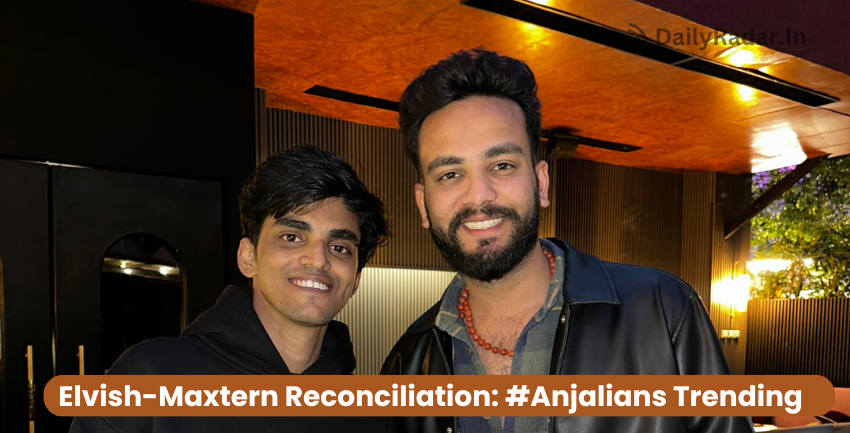Residents oppose allotment of flat to Muslim family: In Vadodara, Gujarat, fresh controversy has erupted over the allotment of a flat to a Muslim woman in the housing project, which the Vadodara Municipal Corporation constructed. The issue has not gone down well with several residents of Motnath Residency, Harni area, who have resorted to protests in the recent past.
Table of Contents
Residents have been saying that this is a place meant only for Hindus and are even asking for the allotment of a flat to be canceled. This brings to light several socio-legal issues underlying the whole problem.
Background of the Conflict: Residents Oppose Allotment of Flat to Muslim Family
The Motnath Residency houses around 460 flats, constructed under the Mukhyamantri Awas Yojana of the Gujarat government. This scheme constructs projects aimed at providing cheap houses for low-income families. The controversy broke out in 2018 when a Muslim lady was allotted a flat in this complex. She had been allotted the flat six years ago but has not yet been able to shift to her home due to strong opposition put up by residents of the area who justified that the locality is meant only for Hindus.
#GujaratCM scheme allots flat to Muslim govt employee in #Vadodara. Residents protest citing possible "threat and nuisance"
— Madhavan Narayanan (@madversity) June 14, 2024
So much for tall claims of unbiased labharthi culture!#VadodaraNagarNigam pic.twitter.com/ljbeWnBQzq
The act does not allow for the sale of any property in the community by one community to a person of another community without the collector’s prior consent of the area.

Concerns of Residents
The residents feel that because Harni falls under the Disturbed Areas Act, the prohibition is supposedly against the sale of a property from one community to a person of another community without the prior approval of the area from the district collector. They feel it is meant to preserve communal harmony and to keep a peaceful existence.
Locals contended that the VMC had violated this act when it allotted a flat in their Hindu-dense locality to a Muslim woman. It was in this context that Jitendra Parmar expressed why he was grievous in these words: “Even though the entire area falls under the Disturbed Areas Act, one flat in this society is allotted to a Muslim woman, and it consists of 12 towers. This allotment we don’t know how it was made. We all paid money and bought flats in this society with the hope that we would live quietly for the rest of our days under that law, under the protection of the enforcement of that law.“
The Struggle of the Woman
The woman who was allotted has gone through much struggle from when she was allotted her flat until today due to the stay orders that kept coming and going. She currently stays in another area with her son and has been unable to move into her allotted flat. “Though I was allotted the house in 2018, I could not move in because of opposition from other residents. Even till now, there is no solution to be seen,” she said.

Government’s Response
Dilip Rana, the Municipal Commissioner of Vadodara, accepted having received a representation from the occupants of Motnath Residency. He further quoted, “I will go through all the papers and then take an appropriate decision. We have a rule ensuring that Hindus and Muslims get flats in their designated areas. This applies only to those housing projects, which falls under the Disturbed Areas Act. We have to check if this society falls in that category. The criteria for determining whether an area is disturbed include factors such as communal tension and historical incidents of violence. If the society in question meets these criteria, the rules will apply, and we will need to take appropriate action based on our findings.“
Understanding Disturbed Areas Act: Legal Context
The Disturbed Areas Act of 1991 was enacted following a situation of distress sale of property in communally sensitive areas. The act says that for any transaction, prior permission by the district collector is necessary for selling or transferring any property in those areas. This makes no force or threat in the sale, and a fair price is fetched to the seller. Now, this Disturbed Areas Act is implemented in most areas in Gujarat, like Ahmedabad, Vadodara, Surat, Rajkot, Khambhat, Bharuch, Kapadvanj, Anand, and Godhra.

Continuous Protest by Residents Oppose Allotment of Flat to Muslim Woman
The locals have continued to protest, even demonstrating at the press and mailing letters to relevant departments. They have cautioned that they will intensify their agitation and take up the matter to the following higher levels of the government if their demands were not met. “If our demand is not met, we will stage protests outside offices and residences of corporators, MLAs, and MPs,” said one resident who didn’t wish to be named. “We will gherao the chief minister in Gandhinagar if the issue is not resolved.” 33 residents oppose allotment of flat to Muslim woman in Vadodara Housing Society.
Also Read: Discrimination Against Indians in South Korea
Conclusion
The situation in Vadodara mirrors the complex difficulties that come along with communal living and the problems involved in making sure the process of apartment allocation is just. The residents oppose allotment of flat to Muslim woman is not merely profoundly rooted issues of religious apartheid but also social discord.
As the VMC considers this case (residents oppose allotment of flat to Muslim woman) along with all the necessary and available legal papers, it is bound to set much precedence for similar cases in the future. The issue of housing allotment to a Muslim woman is not local but mirrors far-reaching challenges in society. It calls for a solution that is not only just by the law but also fair and promotes communal harmony.







